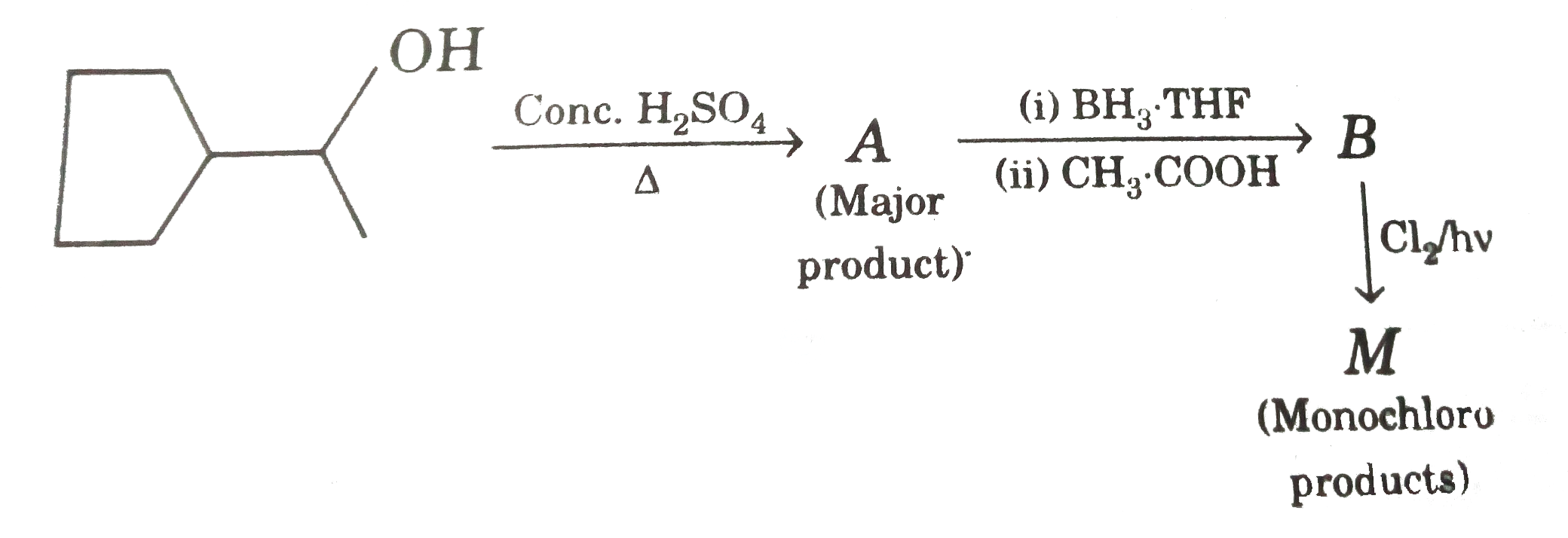Several programs are in memory in the state of execution and whenever a program waits for input - output operation to complete , another program is executed by CPU . This is known as :
Multiprocessing
Multiprogramming
Timesharing
Multitasking
The correct Answer is:B
Similar Questions
Knowledge Check
During execution, the program and data should be resident in-
AMain MemoryBHard diskCFloppyDControl UnitA programming language having a________is slow in execution
AInterpreterBcompilerCAssemblerDlinker_______is the execution of at least two different programs simultaneously,
AMultiprocessingBMulti programmingCRecoveryDintegrity

A on reaction with Br-Cl gives :
View SolutionA program module is given below with various steps involved, which starts with the values of a,b,c as 1,2,3 respectively. These values remain unchanged till step .<br>Theprogramisexecutedwiththehelpoffollow∈gopera→rs.<br>Milan2(P)=Pxx2<br>Milaap2(P)=P+2<br>andb=ameansthevalueofaisassig≠d→b.<br>START<br>Step1.Read(a,b,c)<br>Step2.Milan2(a)<br>Step3.Milaap2(b)<br>Step4.c=a+b<br>Step5.Ifcgt111, then go to step 6 else go to step 2.
Step 6. STOP
In a particular cycle a,b and c get the values such that 9a=8c, then the value of b is:
View SolutionA crucial element that defines the soap opera is the open ended nature of the narrative, with stories spanning several episodes. One of the defining features that makes a television program a soap opera, according to Albert Moran is that form of television that works with a continuous open narrative. Each episode ends with a promise that the storyline is to be continued in another episode."
In 2012, Robert Lloyd of the Los Angeles Times wrote of daily dramas, "Although melodramatically eventful, soap operas such as this also have a luxury of space that makes them seem more naturalistic, indeed, the economics of the form demand long scenes, and conversations that a 22episodes-per-season weekly series might dispense with in half a dozen lines of dialogue may be drawn out, as here, for pages. You spend more time even with the minor characters, the apparent villains grow less apparently villainous."
Soap opera storylines run concurrently, Intersect and lead into further developments. An individual episode of a soap opera will generally switch between several different concurrent narrative threads that may at times interconnect and effect one another or may run entirely independent of each other. Evening soap operas and serials that run for only a part of the year tend to bring things to a dramatic end of season cliffhanger.
A soap opera has the space for it to be more
View SolutionA crucial element that defines the soap opera is the open ended nature of the narrative, with stories spanning several episodes. One of the defining features that makes a television program a soap opera, according to Albert Moran is that form of television that works with a continuous open narrative. Each episode ends with a promise that the storyline is to be continued in another episode."
In 2012, Robert Lloyd of the Los Angeles Times wrote of daily dramas, "Although melodramatically eventful, soap operas such as this also have a luxury of space that makes them seem more naturalistic, indeed, the economics of the form demand long scenes, and conversations that a 22episodes-per-season weekly series might dispense with in half a dozen lines of dialogue may be drawn out, as here, for pages. You spend more time even with the minor characters, the apparent villains grow less apparently villainous."
Soap opera storylines run concurrently, Intersect and lead into further developments. An individual episode of a soap opera will generally switch between several different concurrent narrative threads that may at times interconnect and effect one another or may run entirely independent of each other. Evening soap operas and serials that run for only a part of the year tend to bring things to a dramatic end of season cliffhanger.
An individual episode of a soap opera generally switches between
View SolutionA crucial element that defines the soap opera is the open ended nature of the narrative, with stories spanning several episodes. One of the defining features that makes a television program a soap opera, according to Albert Moran is that form of television that works with a continuous open narrative. Each episode ends with a promise that the storyline is to be continued in another episode."
In 2012, Robert Lloyd of the Los Angeles Times wrote of daily dramas, "Although melodramatically eventful, soap operas such as this also have a luxury of space that makes them seem more naturalistic, indeed, the economics of the form demand long scenes, and conversations that a 22episodes-per-season weekly series might dispense with in half a dozen lines of dialogue may be drawn out, as here, for pages. You spend more time even with the minor characters, the apparent villains grow less apparently villainous."
Soap opera storylines run concurrently, Intersect and lead into further developments. An individual episode of a soap opera will generally switch between several different concurrent narrative threads that may at times interconnect and effect one another or may run entirely independent of each other. Evening soap operas and serials that run for only a part of the year tend to bring things to a dramatic end of season cliffhanger.
The economics of a soap opera form demands for it to have
View Solution
